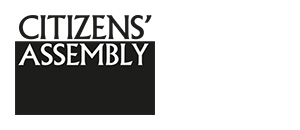What is the Citizens’ Assembly?
A. The Citizens’ Assembly is a group of people brought together, broadly representing the diversity of the population, to deliberate on a number of issues. In the past these have been on issues such as electoral reforms, constitutional amendments, and devolved powers.
The design of a Citizens' Assembly provides an opportunity for a cross-section of the public to hear from experts and campaigners and to engage in considered, thoughtful and reasoned discussion of the issues. The end goal of the Assembly is to make recommendations on the various options available.
The Citizens' Assembly on Brexit is tasked with deliberating on the type of Brexit the UK should pursue.
Who are the Members?
There were approximately 45 members of the Assembly. We approached potential members through a UK-wide representative survey, conducted by ICM, and then contacted by phone respondents who expressed an interest in joining the Assembly. The recruitment followed a stratification plan, with the aim of securing a group of people who were broadly representative of the UK electorate across characteristics such as whether they voted Leave or Remain, their gender, ethnicity, social class and the region of the UK in which they live.
How can I apply to be a member?
There is no option for a member of the public to directly apply to be a member of the Assembly as this would mean we were unable to determine if applicants were representative of the general public.
Will the Assembly be accessible for people with disabilities?
The Assembly was designed to be broadly representative of the UK electorate and therefore the Assembly organisers made every effort to ensure that the Assembly’s business was accessible as far as is practicable and appropriate to people with disabilities.
How were the meetings run?
The Assembly’s meetings took place across two weekends in September. They were designed to help all Assembly members participate fully and develop their ideas in light of expert evidence and the views of other members. Assembly members heard from a diverse range of speakers with widely varying perspectives on Brexit. They were able to ask the speakers questions and consider among themselves what they made of what the speakers said. They then developed conclusions, which will be written up in a report.
The format of the weekends will be outlined in more detail at a later stage.
Were members paid for attendance?
Members received £200 per weekend as a token of thanks for taking part in the Assembly. Travel and accommodation costs for participants were also covered, as well as meals during the course of the assembly.
Where was the Assembly held?
The assembly will be held in Manchester.
Could I have attended as an observer?
There was very limited space for observers during Assembly meetings. Anyone who wished to do so should have contacted us through the website stating their reason for wishing to observe the Assembly. Observers sat at the back of the room while the Assembly met and were not be allowed to interact with Assembly members. These restrictions were important to preserve the integrity of the deliberative process.
Who funded the Assembly?
The Citizens’ Assembly project is part of the UK in a Changing Europe initiative, funded by the Economic and Social Research Council (ESRC).
The UK in a Changing Europe initiative, directed by Professor Anand Menon of King’s College London, exists to provide an authoritative, non-partisan and impartial reference point for those looking for information, insights and analysis about UK–EU relations.
The ESRC is the UK’s largest organisation funding social and economic research. This non-departmental public body (NDPB) supports independent, high quality research with impact ranging across business, the public sector and civil society.
